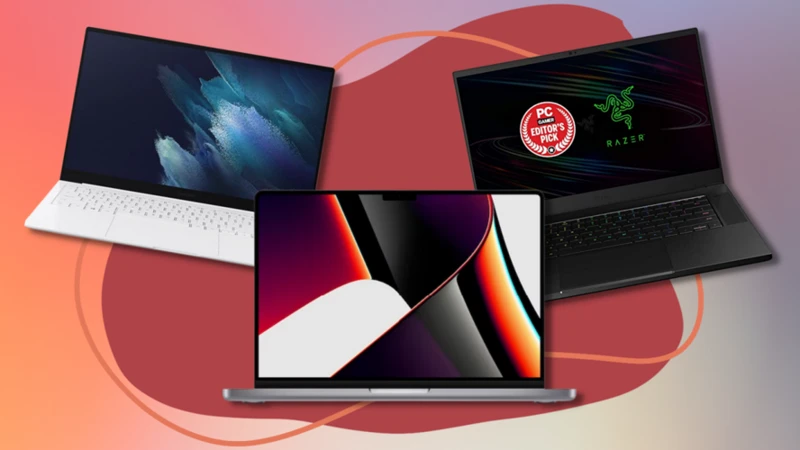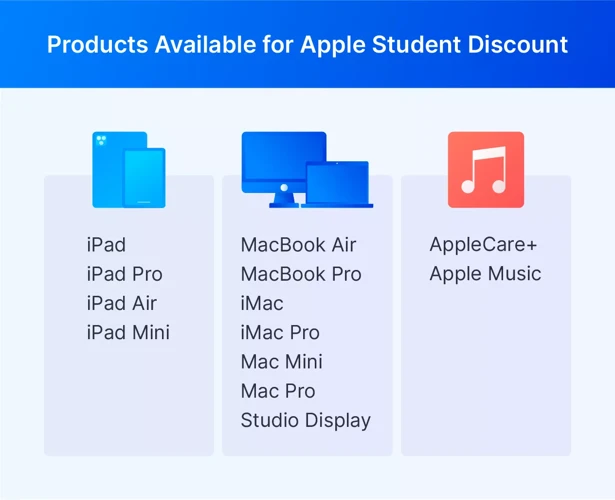Tips for Maintaining and Extending the Lifespan of Your Laptop – Your laptop is a valuable investment that plays an essential role in your daily life, whether it’s for work, education, or entertainment. To ensure that your laptop continues to perform optimally and lasts for years to come, it’s crucial to follow a few simple maintenance tips. In this article, we will explore various strategies to enhance the longevity of your laptop, from regular cleaning and physical protection to optimizing performance and caring for the battery. By implementing these practices, you can not only maximize the lifespan of your laptop but also enhance its overall performance. So, let’s dive in and discover the best ways to maintain and extend the life of your laptop.
Contents
- Regular Maintenance
- Treating Your Laptop Gently
- Optimizing Performance
- Battery Care
- Proper Cleaning
- Protecting Against Physical Damage
- Conclusion
-
Frequently Asked Questions
- 1. Why is it important to keep the operating system and drivers updated?
- 2. How often should I perform PC cleanups?
- 3. Why is good antivirus protection necessary?
- 4. How can I manage the laptop’s physical environment to prevent overheating?
- 5. What are the benefits of handling the laptop with care?
- 6. Why should I avoid placing heavy objects on the laptop?
- 7. How does using a laptop bag or case for transport help?
- 8. Why should I close unnecessary programs and processes?
- 9. What are the advantages of keeping the desktop clutter-free?
- 10. How does using a laptop cooling pad help optimize performance?
- References
Regular Maintenance

Regular maintenance is a crucial aspect of prolonging the lifespan of your laptop. By regularly cleaning your laptop, updating software and operating systems, and replacing batteries when necessary, you can ensure that your device operates efficiently and lasts longer. It’s important to check for signs of wear and tear, such as frayed cords or cracked screens, and address these issues promptly to prevent further damage. Implementing a regular maintenance program, like the one implemented by a school in Georgia, can result in a significant reduction in repair costs. Taking the time to maintain your laptop regularly is much more cost-effective than dealing with expensive repairs or replacements. So, make sure to prioritize regular maintenance to keep your laptop in good condition and extend its lifespan.
1. Keep the operating system and drivers updated
Keeping your operating system and drivers updated is essential for maintaining the performance and security of your laptop. Regular updates ensure that your computer has the latest features, bug fixes, and security patches. By staying up to date, you can take advantage of improved functionality and protect your laptop from potential cyber threats.
To keep your operating system updated, make sure to enable automatic updates or regularly check for updates manually. Most operating systems, such as Windows, have built-in update features that allow you to easily download and install the latest updates.
In addition to the operating system, it’s crucial to update your drivers as well. Drivers are software components that allow your hardware devices to communicate with the operating system. Outdated drivers can lead to compatibility issues, performance problems, and even system crashes.
To update your drivers, you can use the built-in update feature provided by your operating system or visit the manufacturer’s website for your specific hardware device. They often have driver downloads available for the latest versions.
By keeping your operating system and drivers updated, you can ensure that your laptop runs smoothly, efficiently, and securely. It’s an essential step in maintaining the overall health and longevity of your device.
For more information on choosing the right laptop for college, you can check out our informative guide here.
2. Perform regular PC cleanups
Regular cleanups are essential for keeping your laptop running smoothly and maintaining its performance. By cleaning up your PC regularly, you can get rid of unwanted files and free up valuable storage space. This will not only improve your laptop’s speed but also prevent it from becoming sluggish and unresponsive.
To perform regular PC cleanups, there are a few steps you can follow:
1. Uninstall unused programs: Start by manually uninstalling any programs that you no longer use or need. This will help free up space on your hard drive and reduce clutter. You can do this by going to the Control Panel and selecting “Uninstall a program.”
2. Empty the recycle bin: After uninstalling programs, make sure to empty your recycle bin. This will permanently delete any files and folders that you have previously deleted, freeing up additional space on your hard drive.
3. Delete temporary files: Temporary files are created by various programs and can take up a significant amount of storage space over time. To get rid of these files, you can use disk cleanup software such as CCleaner or Windows Disk Cleanup. These tools will scan your computer for temporary files and allow you to delete them with just a few clicks.
4. Remove browser cookies and cache: Browser cookies and cache can also accumulate over time and slow down your browsing experience. Clearing these files regularly can help improve your internet speed and free up storage space. Most web browsers have built-in options to clear cookies and cache, which you can find in their settings or preferences.
By performing these regular PC cleanups, you can keep your laptop running smoothly, prevent it from becoming cluttered with unnecessary files, and ensure that you have enough storage space for your important documents and files. Remember to schedule these cleanups regularly, whether it’s once a month or every few months, to maintain the optimal performance of your laptop.
For more tips on maintaining and extending the lifespan of your laptop, you can check out our article on the best deals on laptops for students.
3. Ensure good antivirus protection
To protect your laptop from the potential harm caused by malware, viruses, and cyber threats, it is crucial to have reliable antivirus protection in place. A reputable antivirus program will act as a shield, detecting and eliminating any harmful software that may compromise your system’s security.
One highly recommended antivirus program is Norton Security Ultra, offered by Acer. This program provides comprehensive protection for your valuable financial and private information, safeguarding it from cybercriminals. Another option is Microsoft Defender Antivirus, which is a free antivirus program built into Windows. It offers real-time virus and threat prevention, ensuring that your laptop remains protected.
It is important to regularly update your antivirus software to stay ahead of emerging threats. When an update is available, make sure to install it and run a scan to remove any potential malware or viruses. By doing so, you can maintain a secure computing environment and minimize the risk of data loss or identity theft.
Remember, a strong antivirus program is an essential component of your laptop’s overall security. By investing in reputable antivirus software and keeping it up to date, you can significantly reduce the chances of falling victim to cyber threats.
For more information on laptop security tips for students, you can check out our article on laptop security tips for students.
4. Manage the laptop’s physical environment to prevent overheating
To prevent your laptop from overheating, it is important to manage its physical environment. Overheating can lead to performance issues and potential damage to internal components. Here are some tips to help you maintain an optimal temperature for your laptop:
1. Avoid exposing your laptop to high temperatures: Extreme heat can cause your laptop to overheat and may even lead to hardware failures. Avoid leaving your laptop in a hot car or exposing it to direct sunlight for extended periods. It is recommended to keep your laptop in the shade whenever temperatures are high.
2. Use a cooling pad: If you use your laptop for resource-intensive tasks like gaming or video editing, it can generate a lot of heat. Investing in a cooling pad with built-in fans can improve airflow and dissipate heat from the bottom of the laptop. This will help keep your laptop running at optimal temperatures.
3. Clean your laptop regularly: Dust and dirt can accumulate on the laptop’s internal components, including the fan. This can lead to clogging and hinder proper heat dissipation. Regularly clean your laptop’s hardware using a soft, lint-free cloth to remove any debris. This will ensure that the cooling system functions efficiently.
4. Check your Windows power settings: Adjusting a few Windows settings can help your laptop stay cool. Lower the display’s brightness to reduce heat generation. Change the power plan settings to Balanced, which can optimize power usage and temperature management. Additionally, change the System cooling policy for Plugged In from Passive to Active, which increases the fan speed when needed.
By managing the physical environment of your laptop, you can prevent overheating and maintain optimal performance. Implement these tips to extend the lifespan of your laptop and ensure a smoother computing experience. For more information on laptop maintenance, you can reach out to Gary’s Computer Repair Service, who can assess your laptop’s cooling needs and recommend suitable solutions.
Treating Your Laptop Gently

Treating Your Laptop Gently – Your laptop is a delicate device that requires gentle handling to prevent damage and ensure its longevity. When using your laptop, it’s important to handle it with care, avoiding rough handling, drops, or impacts that could cause internal or external damage. Additionally, avoid placing heavy objects on the laptop, as the weight can stress the display or other components. To further protect your laptop during transportation, use a laptop bag or case designed to cushion the laptop and provide protection against bumps and drops. By treating your laptop gently and taking precautions to prevent physical damage, you can ensure that it remains in good condition for years to come.
5. Handle the laptop with care
When it comes to extending the lifespan of your laptop, one of the most important aspects to consider is how you handle and treat your device. By following some simple guidelines, you can avoid unnecessary damage and ensure that your laptop remains in excellent condition for a longer time.
First and foremost, always handle your laptop with care. Avoid dropping it or mishandling it, as this can lead to internal damage or cause the screen to crack. Treat your laptop as a delicate electronic device that requires gentle handling.
Additionally, be cautious when opening and closing the laptop lid. Use both hands and avoid applying excessive force. This will prevent any strain on the hinges and help maintain the structural integrity of your device.
Be mindful of the laptop’s ports and connectors. When inserting cables or peripherals, do so gently and align them properly to avoid any damage to the ports. Rough handling can result in loose connections or even permanent damage.
Another important aspect of handling your laptop with care is to avoid placing heavy objects on top of it. This can exert pressure on the display or keyboard, leading to cracks or keys getting stuck. Always keep your laptop in a safe and secure location where it won’t be subjected to unnecessary pressure or weight.
Lastly, using a laptop bag or case for transport is highly recommended. This provides an extra layer of protection against accidental bumps or drops, especially when you’re on the move. Invest in a good quality laptop bag that offers ample padding and compartments to keep your laptop secure during transportation.
By handling your laptop with care and being mindful of its fragility, you can significantly increase its lifespan and avoid costly repairs or replacements. Taking these precautions will ensure that your laptop remains in excellent condition for years to come.
For more information on laptop accessories or tips for upgrading your laptop, check out our article on laptop accessories for online learning.
6. Avoid placing heavy objects on the laptop
When it comes to maintaining and extending the lifespan of your laptop, one important tip is to avoid placing heavy objects on the laptop. Putting excessive weight on your laptop can cause physical damage to the device, such as bending or cracking the frame. This can lead to various issues, including malfunctioning components or a broken screen.
It’s essential to remember that laptops are designed to be lightweight and portable, making them susceptible to damage from heavy objects. Placing heavy items, such as books or other electronics, on top of your laptop can put unnecessary pressure on the delicate internal components and affect the overall performance and longevity of the device.
To protect your laptop from this potential damage, it’s recommended to always keep your laptop in a safe and secure location. Avoid placing heavy items on top of your laptop, especially when it is closed or in a bag. Instead, store your laptop in a dedicated laptop sleeve or case to provide an extra layer of protection.
By following this simple tip and avoiding the placement of heavy objects on your laptop, you can prevent physical damage and ensure that your laptop lasts for a longer period of time. Remember, taking care of your laptop is a worthwhile investment that can save you money in the long run.
For more tips on maintaining and extending the lifespan of your laptop, check out our article on upgrading laptop tips.
7. Use a laptop bag or case for transport
When it comes to transporting your laptop, it’s important to use a laptop bag or case to ensure its safety and protect it from damage. There are different types of laptop bags available, each with its own advantages and suitability for different scenarios.
1. Laptop Backpack: If you find yourself walking or using public transport frequently, a laptop backpack is a great option. It offers well-padded compartments specifically designed to protect your laptop and is easy on your shoulders. The padded straps made of foam and mesh fabric provide a comfortable carrying experience, distributing the weight evenly.
2. Laptop Sleeve: If your movement is minimal and you primarily use your laptop indoors, a laptop sleeve can suffice. It offers protection against dust, minor scratches, and abrasions, and is easy to manage. It is a sleek and lightweight option, perfect for slipping your laptop into a larger bag or carrying it on its own.
3. Laptop Case: If you don’t frequently move between locations or have private transportation, a laptop case can be a practical choice. It combines the sleekness of a sleeve with the carrying convenience of a backpack. With a carrying handle and shoulder strap, it offers portability and protection for your laptop.
When choosing a laptop bag or case, prioritize quality and durability. Look for bags made of materials like nylon, polyester, neoprene, or EVA. Ensure that the bag is well-padded, especially if there is an increased risk of your laptop getting damaged. Consider if the bag is waterproof, particularly if you commute frequently and may encounter rain.
Using a laptop bag or case provides convenience and storage options. Most bags and cases have pockets to store additional items such as your charger and mouse, allowing you to keep all your devices in one place. This makes it easier to transport your laptop from one location to another while keeping everything organized.
Remember, using a laptop bag or case not only protects your laptop from scratches, dirt, and other physical damage but also ensures your comfort while carrying it. Choose the type of bag or case that suits your needs and provides the level of protection and convenience you require.
Optimizing Performance

Your laptop’s performance can greatly impact your overall experience, whether you’re working, studying, or gaming. To optimize performance and ensure a smooth computing experience, there are several steps you can take. Firstly, it’s important to close unnecessary programs and processes that may be running in the background, as this can free up system resources. Additionally, keeping your desktop clutter-free can help improve performance by reducing visual distractions. Using a laptop cooling pad can also help prevent overheating and maintain optimal performance, especially during intensive tasks like gaming. If needed, consider upgrading hardware components to enhance your laptop’s capabilities. By implementing these performance optimization strategies, you can enjoy a faster and more efficient laptop experience.
8. Close unnecessary programs and processes
To optimize the performance and extend the lifespan of your laptop, it’s important to close any unnecessary programs and processes that are running in the background. These programs consume valuable system resources, including memory, disk usage, and network bandwidth, which can lead to slower performance and increased power consumption.
To identify and close unnecessary programs and processes, you can use the Task Manager. Open the Task Manager by right-clicking the Windows Start icon in the lower-left corner of your screen and selecting “Task Manager.” Once the Task Manager is open, go to the “Processes” tab.
In the Processes tab, you will see a list of all the processes and programs that are currently running on your laptop. Take a look at the list and identify any programs or processes that you don’t need or rarely use. These could be applications that automatically start up when you turn on your laptop or background processes that you don’t actively use.
To close a program or process, simply right-click on it and choose “End Process.” Be cautious when ending processes, especially for antivirus software or software that you use regularly. Ending the wrong process can cause issues with your laptop’s functionality.
By closing unnecessary programs and processes, you can free up system resources, reduce CPU usage, and improve overall performance. This can also help extend your laptop’s battery life, especially if you’re using a laptop.
Remember to regularly check the list of running processes and close any unnecessary ones. This will help keep your laptop running smoothly and efficiently.
For more tips and information on laptop maintenance, you can visit our article on the pros and cons of buying a Chromebook for students.
9. Keep the desktop clutter-free
A clutter-free desktop is essential for maintaining a smooth and efficient workflow on your laptop. When your desktop is cluttered with unnecessary files, folders, and program shortcuts, it can slow down your computer’s performance and make it difficult to find what you need when you need it. To keep your desktop organized and clutter-free, follow these tips:
1. Clear your desktop: Start by removing any files, folders, or programs that you don’t need readily available. Only keep items on your desktop that you use frequently and need quick access to.
2. Utilize your taskbar: Instead of cluttering your desktop with program shortcuts, pin them to your taskbar. This keeps them readily accessible without the need for desktop icons.
3. Thoughtful file naming: When saving files, take the time to give them intentional and descriptive names. This will make it easier for you to locate and identify files later on, reducing the need to clutter your desktop with multiple versions of the same file.
4. Create folders: Organize your files into folders based on categories or projects. This will help keep your desktop clean and make it easier to find specific files when you need them.
5. Regular clean-up: Just like you would tidy up a physical desktop or counter, make it a habit to clear away files and folders from your desktop once you’re finished with them. Move them to appropriate folders or delete them if they’re no longer needed.
By keeping your desktop clutter-free, you’ll not only improve the overall performance and speed of your laptop but also create a visually pleasing and organized workspace. This will enhance your productivity and make it easier to find and focus on the tasks at hand.
For more tips on maintaining and extending the lifespan of your laptop, check out our article on comparing operating systems for students.
10. Use a laptop cooling pad
Using a laptop cooling pad is an effective way to keep your laptop cool and prevent overheating. A laptop cooling pad is a device that helps improve airflow around your laptop and dissipate heat. It can significantly enhance the performance and lifespan of your laptop.
When you use a laptop cooling pad, it provides a barrier between your laptop and the surface it’s resting on. This helps to alleviate overheating problems that can occur when your laptop is placed on a soft surface like a bed or a couch. The cooling pad creates a gap between the laptop and the surface, allowing for better airflow and ventilation.
There are different types of laptop cooling pads available, including those with fans and those without fans. Cooling pads with fans are the most common type and are designed to generate maximum airflow. They have one or more fans that help to circulate air and dissipate heat from your laptop. These cooling pads are ideal for laptops that tend to get hot quickly or for intensive tasks such as gaming or video editing.
On the other hand, cooling pads without fans are made from heat-absorbing materials. They draw heat away from the laptop and help to keep it cool. These cooling pads are suitable for less demanding tasks or for laptops that don’t generate excessive heat.
When choosing a laptop cooling pad, there are a few factors to consider. Firstly, you’ll want to make sure that the cooling pad is compatible with the size of your laptop. Most cooling pads are designed to fit standard laptop sizes, but it’s always a good idea to check the dimensions before making a purchase.
Additionally, consider the number and placement of fans on the cooling pad. More fans generally mean better cooling performance, but it can also result in more noise. Look for a cooling pad that strikes a balance between cooling efficiency and noise level, depending on your preferences.
Finally, think about the portability and ease of use of the cooling pad. If you frequently travel with your laptop, you may want to choose a lightweight and compact cooling pad that is easy to carry. Some cooling pads also offer additional features such as adjustable height or angle, which can provide added comfort during extended laptop use.
Using a laptop cooling pad can significantly improve the cooling performance of your laptop, leading to improved performance, longer lifespan, reduced fan noise, and increased battery performance. Consider investing in a cooling pad that suits your needs and enhances the overall experience of using your laptop.
11. Upgrade hardware components if necessary
If you find that your laptop is struggling to keep up with the demands of modern applications and tasks, it may be time to consider upgrading its hardware components. Upgrading certain parts of your laptop can significantly improve its performance and extend its lifespan.
Here are a few hardware upgrades you can consider:
1. Upgrade your laptop’s RAM: Increasing the amount of RAM in your laptop can allow it to handle more tasks simultaneously, resulting in smoother performance. Consult with a professional to determine the compatible RAM for your laptop.
2. Switch to an SSD: Upgrading your laptop’s hard drive to a solid-state drive (SSD) can provide faster and easier access to files, as well as shorter load times for applications. This can greatly enhance your overall computing experience.
3. Upgrade your GPU: If you’re into gaming or working with high-definition video, upgrading your laptop’s graphics processor (GPU) can improve the quality and performance of these tasks. Ensure that the new GPU is compatible with your laptop model.
Before making any hardware upgrades, it’s important to seek professional advice and assistance. They can help you determine which components are compatible with your laptop and guide you through the upgrade process.
Additionally, it’s worth mentioning that if your current hardware is incompatible with newer versions of an operating system, it may be necessary to consider purchasing a new laptop. Make sure to check the compatibility of your laptop with the latest operating systems, such as Windows 11 or macOS Monterey.
Remember, upgrading hardware components can breathe new life into your laptop and ensure it remains capable of handling the latest software and tasks. By investing in the right upgrades, you can extend the lifespan of your laptop and enjoy a smoother computing experience.
For more information on budget laptops for students, you can check out our article on budget laptops for students. If you’re interested in understanding the difference between gaming laptops and regular laptops, you can read our guide on gaming laptops vs regular laptops.
Battery Care

Battery Care – Taking care of your laptop’s battery is crucial for ensuring its longevity and optimal performance. Here are some tips to help you maintain and extend the lifespan of your battery:
– Avoid overcharging the battery. Overcharging can lead to capacity loss and reduced battery life. It’s best to unplug the charger once the battery is fully charged.
– Regularly calibrate the battery. This involves fully charging and then fully discharging the battery. Calibrating the battery helps to improve its accuracy in reporting the remaining battery life.
– Utilize power saving settings. Adjusting your laptop’s power settings can help conserve battery life. Lowering the screen brightness, enabling sleep mode, and reducing background processes can all contribute to longer battery life.
By following these battery care tips, you can ensure that your laptop’s battery remains in good health and performs optimally for an extended period of time. Remember, a well-maintained battery can greatly enhance your laptop’s overall lifespan and save you money in the long run.
12. Avoid overcharging the battery
One important aspect of maintaining and extending the lifespan of your laptop is to avoid overcharging the battery. Overcharging can lead to damage and reduce the overall lifespan of the battery. To prevent overcharging, it’s recommended to unplug the charger once the battery reaches a full charge level. This will help avoid subjecting the battery to excessive charge cycles and potential overheating.
To further protect your battery, it’s advisable to use the recommended charger and a charging cable specifically designed for your laptop. Using the wrong charger or cable can result in high charge and discharge rates, which can lead to chemical reactions and increased battery temperature. These conditions can potentially cause thermal runaway, damage the battery, or even pose a fire hazard.
It’s also worth mentioning that using your laptop while it’s charging can increase the battery’s temperature and reduce its performance. To maintain optimal battery health, it’s best to avoid using the laptop while it’s plugged in.
By following these guidelines and avoiding overcharging the battery, you can help extend its lifespan and ensure that your laptop continues to perform optimally for years to come.
13. Calibrate the battery regularly
Calibrating the battery of your laptop is an important step in maintaining its overall performance and lifespan. Over time, the battery’s capacity to hold a charge diminishes, and calibrating it can help extend its longevity. By following this simple process, you can ensure that the battery remains properly calibrated throughout its lifespan.
To calibrate your battery, start by completely discharging it. Use your laptop until it cuts off the energy or automatically shuts down or sleeps. This will ensure that the battery is fully drained. Once it is completely discharged, recharge it back to 100%.
Calibrating the battery should be done periodically, ideally after every 30 partial charges. This process helps maintain the accuracy of the battery gauge, ensuring that it charges up to 100% and performs optimally.
By calibrating your battery regularly, you can restore its performance if you notice your laptop running out of juice more quickly than usual. It also helps prevent the battery from only charging up to a certain percentage, such as 80% to 99% on the gauge.
Remember, a little bit of TLC for your battery can go a long way in enhancing its lifespan and keeping your laptop running smoothly. So don’t forget to calibrate your battery regularly to ensure its optimal performance and longevity.
14. Use power saving settings
One of the most effective ways to prolong the battery life of your laptop is by utilizing power saving settings. These settings can help minimize power consumption and extend the time between charges. By adjusting the power management settings on your laptop, you can optimize its energy usage and conserve battery power.
There are several power saving features that you can enable on your laptop. One of the key settings is adjusting the screen brightness. Lowering the brightness level of your laptop’s display can significantly reduce power consumption. You can easily adjust the screen brightness from the settings menu or through the keyboard shortcuts on your laptop.
Another useful power saving feature is sleep mode. When you enable sleep mode, your laptop enters a low-power state, allowing for an instant return to your work when you wake it up. Sleep mode helps conserve battery power by temporarily shutting down unnecessary processes and reducing power usage.
If you want to save even more power, you can consider using hibernation mode. Hibernation mode completely shuts down all processes on your laptop, saving more power than sleep mode. However, it takes longer to start up your laptop from hibernation compared to sleep mode.
Additionally, you can enable the hard drive spin-down feature. This feature automatically turns off the hard drive when it’s not in use, reducing noise and saving power. By utilizing this feature, you can further optimize the energy usage of your laptop.
To access and customize these power saving settings, you can go to the power management section in your laptop’s settings. From there, you can adjust the screen timeout duration, enable sleep or hibernation mode, and configure other power saving options.
By utilizing these power saving settings effectively, you can ensure that your laptop’s battery life is prolonged while also helping conserve energy. Proper maintenance of power management settings should be considered essential for any laptop owner hoping to get maximum longevity out of their device’s battery. So, start utilizing these power saving features and make the most out of your laptop’s battery life.
Proper Cleaning

Proper Cleaning: Keeping your laptop clean is an important aspect of maintaining its lifespan and performance. To clean your laptop, use a soft, lint-free cloth to wipe down the surface regularly, removing fingerprints and preventing dust and debris from accumulating in the cracks and on the keyboard. Avoid using harsh chemicals or household cleaners, as they can damage the laptop’s finishes. Instead, use a mixture of distilled water and distilled vinegar or a cleaning solution specifically designed for computers. It’s also crucial to clean the keyboard and touchpad regularly, as they can harbor germs and bacteria. By following these cleaning practices, you can prevent data loss, extend the life of your laptop, and ensure a healthy and hygienic computing experience.
15. Use a soft, lint-free cloth for cleaning
When it comes to cleaning your laptop, it’s important to use the right tools to avoid causing any damage. One of the best tools for cleaning your laptop is a soft, lint-free cloth. This type of cloth is gentle on the surface of your laptop and helps to remove dust, fingerprints, and smudges effectively.
To clean your laptop using a soft, lint-free cloth, follow these steps:
1. Turn off your laptop and disconnect it from the power source. This is important to ensure your safety and prevent any damage to the laptop.
2. Moisten the cloth with a mixture of 70% isopropyl alcohol and 30% water. Make sure the cloth is damp but not dripping wet. Excess moisture should be removed if the cloth is too wet before wiping the laptop.
3. Gently wipe the moistened cloth on the surfaces that need to be cleaned. Be careful not to allow any moisture to drip into areas like the keyboard, trackpad, or any openings on the laptop. Moisture entering the inside of your laptop can cause damage.
4. Pay special attention to areas that are prone to collecting dust and fingerprints, such as the screen, keyboard, and trackpad. Use gentle and circular motions to clean these areas thoroughly.
Remember, never spray any liquid directly onto the laptop, as it can seep into the internal components and cause damage. Also, avoid using harsh chemicals or solvents, as they can strip away the protective coatings on the laptop’s surfaces.
Using a soft, lint-free cloth for cleaning your laptop is a safe and effective way to keep it looking clean and well-maintained. Regular cleaning will help prevent dust buildup and keep your laptop in optimal condition for longer.
16. Avoid using harsh chemicals
When it comes to cleaning your laptop, it’s important to avoid using harsh chemicals. Certain cleaning chemicals can cause damage to the surfaces of your laptop. It is best to steer clear of chlorine-based cleaners like bleach, peroxides such as hydrogen peroxide, solvents like acetone or paint thinner, and ammonia-based products like Windex. These chemicals can potentially harm the finishes and delicate components of your laptop.
Instead, opt for safer alternatives. Look for plant-based cleaners that are free from alcohol, chlorine, phosphates, ammonia, toxic chemicals, and fragrances. These cleaners are safe to use around your family, including kids and pets. The most popular screen cleaners utilize biodegradable surfactants that provide effective cleaning without leaving harmful residues on your fingers or the screen’s surface. They leave a super-fine, invisible coating that resists the buildup of fingerprints, oils, and dirt.
When cleaning your laptop charger, it’s also important to be cautious. Regularly clean your charger to prevent the accumulation of dirt, dust, and debris, which can lead to damage over time. Use a cloth slightly dampened with warm water to wipe away visible dirt, but be careful not to get any liquid near the electrical connectors. Allow the charger to dry completely before reattaching it to your device.
By avoiding harsh chemicals and using gentle cleaning methods, you can ensure that your laptop and its components remain safe and functional for a longer period. Taking these simple steps can help extend the lifespan of your laptop and prevent unnecessary damage.
17. Clean the keyboard and touchpad regularly
Keeping your laptop’s keyboard and touchpad clean is essential for maintaining its performance and hygiene. Dust, dirt, and debris can accumulate in these areas over time, affecting the functionality of your keyboard and touchpad. Regular cleaning can help prevent issues and ensure smooth operation.
To clean your keyboard, start by using compressed air to blow away any visible dust or particles from the surface and between the keys. This will help dislodge any debris that may have accumulated. Be sure to hold the canister upright and use short bursts of air to avoid damaging the keys or internal components.
Next, take a damp lint-free cloth and gently wipe down the keys and touchpad. Avoid using excessive moisture or soaking the cloth in water, as this can damage the keyboard. Instead, lightly dampen the cloth and wring out any excess moisture before wiping.
For hard-to-reach areas, such as between the keys, you can use a cotton swab or a small brush to remove stubborn dirt or debris. Be gentle and careful not to apply too much pressure, as this can cause damage.
In addition to regular cleaning, it’s important to practice good hygiene when using your laptop. Clean your hands with soap and water before using your computer to prevent transferring dirt, oils, and germs to the keyboard and touchpad. This will help preserve the cleanliness of these surfaces and reduce the risk of stains or damage.
By incorporating regular cleaning into your laptop maintenance routine, you can ensure that your keyboard and touchpad remain in optimal condition, providing a comfortable and efficient user experience.
Protecting Against Physical Damage
Protecting Against Physical Damage – As you strive to maintain and extend the lifespan of your laptop, it’s important to take steps to protect it from physical damage. While regular maintenance and optimization are crucial, ensuring the physical integrity of your laptop is equally essential. One way to achieve this is by using a laptop sleeve or skin, which provides an additional layer of protection against bumps and scratches. It’s crucial to avoid eating or drinking near your laptop to prevent accidental spills that can cause damage. Additionally, be mindful of the laptop’s surroundings and keep it away from extreme temperatures, as excessive heat or cold can adversely affect its performance and longevity. By implementing these physical protection measures, you can safeguard your laptop and prolong its lifespan, allowing you to continue enjoying its efficient functionality for years to come.
18. Use a laptop sleeve or skin
When it comes to protecting your laptop from physical damage, using a laptop sleeve or skin is a wise choice. These accessories provide an extra layer of defense against scratches, bumps, and other minor accidents that can occur during everyday use.
A laptop sleeve is a lightweight and flexible pouch made of materials like neoprene, nylon, or microfiber. It offers a snug fit for your laptop and can easily slip into a backpack or tote bag for convenient transport. The sleeve’s soft interior provides cushioning and prevents scratches, while the exterior acts as a barrier against dust and dirt.
On the other hand, a laptop skin is an adhesive covering, similar to a sticker, that wraps around your laptop’s chassis. It offers full-width coverage, protecting not only the top and bottom surfaces but also the edges of your laptop. Skins are available in various designs and patterns, allowing you to add a personal touch to your device while keeping it safe from scratches and light damage.
Both laptop sleeves and skins can be customized with your logo or design, making them great options for company branding or personalizing your laptop. Screen printing, UV digital printing, and heat transfer printing are popular methods for adding your desired design onto the sleeve or skin.
By using a laptop sleeve or skin, you can ensure that your laptop remains in pristine condition, even when you’re on the go. These accessories provide an extra layer of protection without adding much bulk or weight to your device. Whether you prefer the flexibility of a sleeve or the full coverage of a skin, investing in one of these options is a smart way to extend the lifespan of your laptop.
19. Avoid eating or drinking near the laptop
Eating or drinking near your laptop may seem harmless, but it can actually pose significant risks to its functionality and longevity. Accidental spills of food and drinks can cause serious damage to your laptop, potentially leading to costly repairs or even rendering it unusable. Liquids can seep into the keyboard, trackpad, or other internal components, causing them to malfunction or corrode.
Even if spills don’t occur, small food particles and crumbs can find their way into the nooks and crannies of your laptop, such as under the keyboard. Over time, these particles can interfere with the laptop’s functionality, attract insects, or cause keys to become sticky or unresponsive.
To minimize the risk of spills and food debris, it is advisable to avoid eating or drinking directly over your laptop. Instead, use coasters and plates for food, and opt for spill-proof containers for drinks. Placing a lid on your drink can also provide an extra layer of protection. Additionally, it is recommended to clean your laptop regularly to remove any accumulated crumbs or debris.
By following these precautions and keeping food and beverages away from your laptop’s vicinity, you can significantly reduce the chances of damage and ensure that your laptop remains in good working condition for a longer period of time.
20. Keep the laptop away from extreme temperatures
To ensure the longevity of your laptop, it is important to protect it from extreme temperatures. Electronic devices, including laptops, are sensitive to temperature extremes and can be negatively affected by both hot and cold conditions.
Exposing your laptop to high temperatures, such as leaving it in a hot car or exposing it to direct sunlight for extended periods, can cause overheating. This can lead to hardware failures or a reduced lifespan of your laptop. It is advisable to store and use your laptop within the manufacturer’s recommended temperature range.
Similarly, extremely low temperatures can also affect your laptop’s performance, particularly the battery. If your laptop gets too cold, it may experience battery issues or even freeze, resulting in potential data loss.
To prevent any temperature-related damage, always store your laptop in a cool room away from direct sunlight. Avoid leaving it in a hot car or any other environment with extreme temperatures. If you bring your laptop in from the cold or heat, allow it to return to room temperature before powering it on.
By keeping your laptop away from extreme temperatures, you can protect its components and ensure optimal performance and longevity. Remember to always follow the manufacturer’s recommendations for temperature usage to avoid any potential issues.
Conclusion
In conclusion, by following these tips for maintaining and extending the lifespan of your laptop, you can ensure that your valuable investment remains in optimal condition for years to come. Regular maintenance, such as keeping the operating system and drivers updated, performing regular PC cleanups, and ensuring good antivirus protection, is essential for keeping your laptop running smoothly. Managing the laptop’s physical environment to prevent overheating and treating it gently by handling it with care, avoiding placing heavy objects on it, and using a laptop bag or case for transport, can help prevent physical damage. Optimizing performance by closing unnecessary programs and processes, keeping the desktop clutter-free, using a laptop cooling pad, and upgrading hardware components if necessary can enhance the overall performance of your laptop. Battery care, including avoiding overcharging, regular calibration, and using power-saving settings, can help prolong the battery’s lifespan. Proper cleaning with a soft, lint-free cloth, avoiding harsh chemicals, and regularly cleaning the keyboard and touchpad can keep your laptop looking and functioning its best. Finally, protecting against physical damage by using a laptop sleeve or skin, avoiding eating or drinking near the laptop, and keeping it away from extreme temperatures can further extend its lifespan. By incorporating these practices into your laptop maintenance routine, you can enjoy a reliable and long-lasting device that meets your needs.
Frequently Asked Questions
1. Why is it important to keep the operating system and drivers updated?
Keeping the operating system and drivers updated is important because it ensures that your laptop has the latest security patches, bug fixes, and performance improvements. It helps to maintain the stability and compatibility of your laptop.
2. How often should I perform PC cleanups?
It is recommended to perform PC cleanups at least once a month to remove temporary files, unnecessary software, and optimize system performance. Regular cleanups help to free up disk space and keep your laptop running smoothly.
3. Why is good antivirus protection necessary?
Good antivirus protection is necessary to safeguard your laptop against malware, viruses, and other online threats. It helps to prevent data loss, unauthorized access, and potential damage to your system.
4. How can I manage the laptop’s physical environment to prevent overheating?
To prevent overheating, ensure proper airflow around your laptop by using it on a flat and hard surface. Avoid blocking the ventilation ports and consider using a laptop cooling pad to help dissipate heat.
5. What are the benefits of handling the laptop with care?
Handling the laptop with care helps to prevent physical damage, such as scratches, dents, or broken components. It also reduces the risk of accidental drops or spills that can cause internal damage.
6. Why should I avoid placing heavy objects on the laptop?
Placing heavy objects on the laptop can exert pressure on the delicate components, leading to damage or distortion. It can also cause the screen to crack or the keyboard to malfunction.
7. How does using a laptop bag or case for transport help?
Using a laptop bag or case for transport provides protection against bumps, shocks, and scratches. It helps to safeguard your laptop when carrying it around or during transportation.
8. Why should I close unnecessary programs and processes?
Closing unnecessary programs and processes helps to free up system resources, such as memory and processing power. This allows your laptop to run more efficiently and reduces the strain on its hardware.
9. What are the advantages of keeping the desktop clutter-free?
Keeping the desktop clutter-free improves the overall organization of your laptop and makes it easier to find files and applications. It also helps to optimize system performance by reducing the load on your laptop’s resources.
10. How does using a laptop cooling pad help optimize performance?
Using a laptop cooling pad helps to dissipate heat generated by your laptop’s components, allowing them to operate at a lower temperature. This can prevent performance throttling and improve overall system performance.







